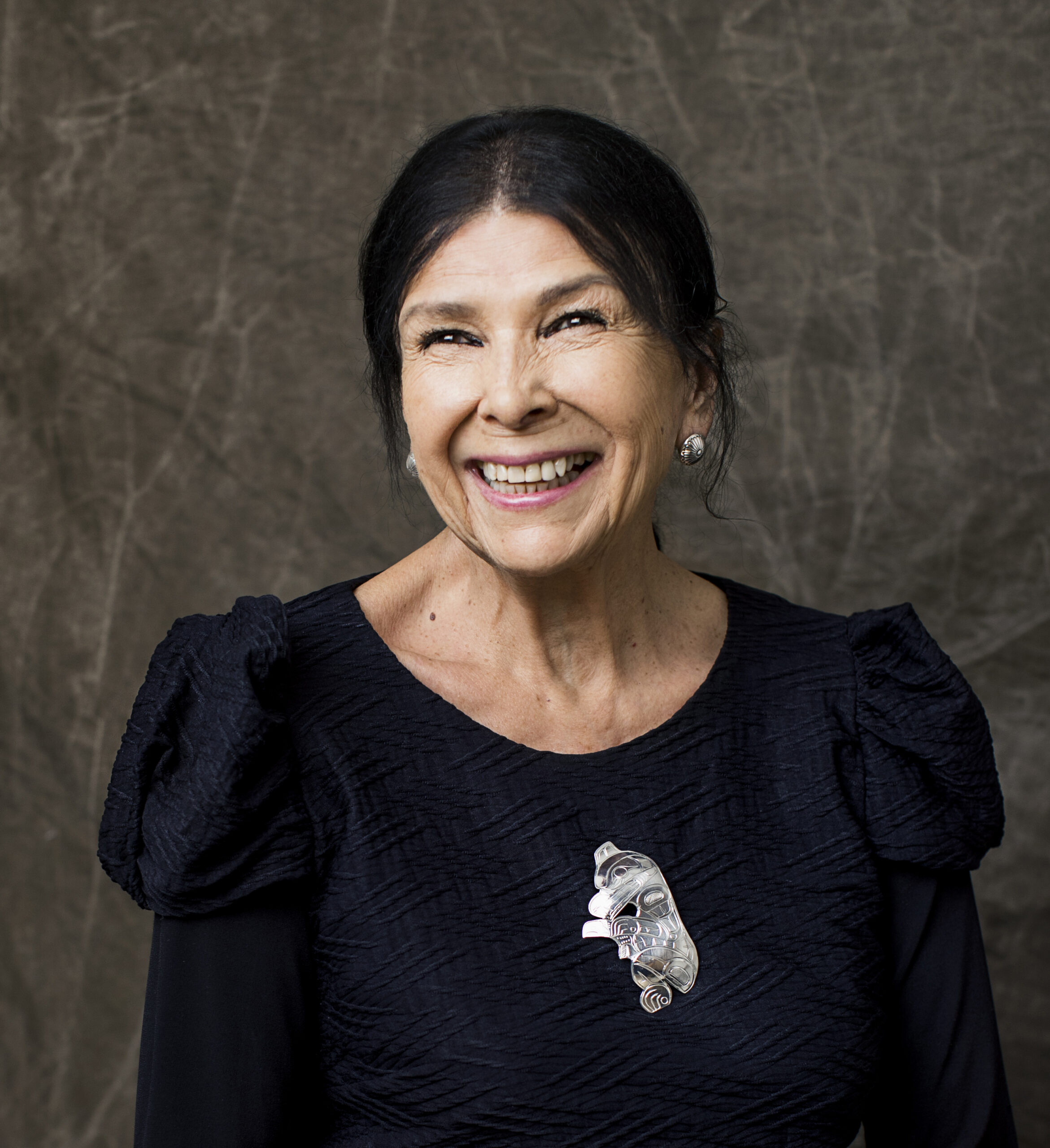Alanis Obomsawin, one of the most acclaimed Indigenous filmmakers in the world, will deliver the 69th Beatty Lecture at McGill University on October 16, at 6 p.m. The event will be moderated by CBC Radio One Ideas host, Nahlah Ayed.
“Alanis Obomsawin’s career is distinguished not only by her artistic vision and storytelling talent but also by her tireless dedication to the empowerment of First Nations peoples in Canada and Indigenous people worldwide,” says Martha Crago, Vice-Principal, Research and Innovation. “Obomsawin’s work is transformative, and it is an honour to welcome her to McGill’s campus to deliver the Beatty Lecture.”
The Beatty Lecture is one of the longest running public lecture series in North America, and uniquely international in scope, inviting lecturers from around the world to speak at McGill. The 2023 Lecture is co-produced by McGill’s Research and Innovation; University Advancement; and the Office of Indigenous Initiatives, the central hub for Indigenous strategies and initiatives at the University. Tickets will go on sale in September.
Legendary storyteller, performer, and filmmaker

Using film as a medium for social justice, Obomsawin has addressed critical First Nations, Inuit, and Métis issues, including land and treaty rights and the profound and lasting impacts of the Canadian residential school system. Her extraordinary body of work includes landmark films such as Incident at Restigouche, released in 1984, about the Quebec police raids on a Mi’kmaq reserve, and Kanehsatake: 270 Years of Resistance, released in 1993, which documents the 1990 Kanien’kéhaka (Mohawk) uprising in Kanehsatake and Oka. Kanehsatake: 270 Years of Resistance won more than a dozen international awards.
Obomsawin has worked at the National Film Board of Canada (NFB) as a writer, director, and producer since 1967 and released 56 documentaries that have served as powerful tools for education, advocacy, and promoting a more inclusive and equitable society.
In addition to a prolific filmmaking career, Obomsawin is a celebrated singer-songwriter, visual artist, and activist. Her engravings and prints have been exhibited internationally, including in retrospectives at the Museum of Modern Art in New York in 2008 and the Montreal Museum of Fine Arts in 2019.
As a singer-songwriter, Obomsawin has toured Canada, the United States, and Europe and is best known for her 1988 album Bush Lady, which features traditional songs of the Abenaki people, as well as original compositions.
In 1965, Obomsawin led a campaign to build a pool in Odanak, an Abenaki reserve northeast of Montreal, raising awareness of the discrimination First Nations children experienced when they were banned from swimming in the pool located in a neighbouring community. That year, she was named Outstanding Canadian of the Year by Maclean’s magazine.
Honours and awards
Obomsawin was born in New Hampshire on Abenaki territory and spent her early years in Odanak, and in Trois-Rivières. In her twenties, Obomsawin moved to Montreal and began performing as a singer, eventually touring the country playing in universities, prisons, art centres, and folk festivals.
For her achievements, she has received more than 35 awards and honours including the Governor General’s Performing Arts Award for Lifetime Artistic Achievement, the Canadian Native Arts Foundation National Aboriginal Achievement Award, and the Glenn Gould Prize. She was named a Grande Officière of the Ordre national du Québec in 2016 and a Companion of the Order of Canada in 2019 – the highest distinctions for both honours.
On July 23, Obomsawin will receive the prestigious Edward MacDowell Medal, recognizing individuals who have made significant cultural contributions. She is the first woman filmmaker to receive this award in its 63-year history. She is also the recipient of numerous honorary degrees, including an Honorary Doctor of Letters from McGill’s School of Continuing Studies.
Later this year, Obomsawin will release her latest film, Wabano: The Light of Day, an intimate look at the first Indigenous Wellness Centre built by and for Indigenous peoples in Canada. The Vancouver Art Gallery is currently presenting The Children Have to Hear Another Story – Alanis Obomsawin, an exhibition tracing her artistic activism over five decades, first shown at the Haus der Kulturen der Welt in Berlin in 2022. The exhibition will subsequently travel to the Musée d’art contemporain in Montreal.
Many of Obomsawin’s films, including those mentioned, are now available to stream for free through the NFB.
Nahlah Ayed, host of the CBC Radio One program Ideas, will emcee the event. A former parliamentary reporter and a veteran foreign correspondent, her work has garnered numerous awards including from the UK Foreign Press Association and the Canadian Association of Journalists. In 2012, her memoir, A Thousand Farewells, was shortlisted for a Governor General’s Literary Award. Ideas broadcasts weeknights at 8 p.m. (8:30 NT) on CBC Radio One and the CBC Listen App.
For more event details, including information on when tickets will go on sale, please visit McGill’s Beatty Lecture webpage and follow the Facebook Event Page. Media are invited to contact the Beatty organizing committee with requests.
